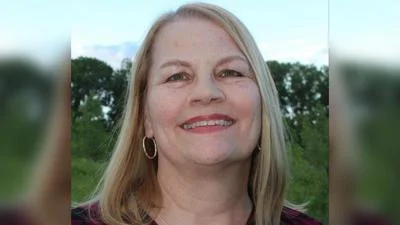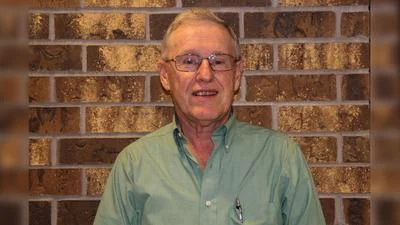Agnes Jackson Sheboygan County GOP Finance Chair | Sheboygan County GOP
Agnes Jackson Sheboygan County GOP Finance Chair | Sheboygan County GOP
Some Wisconsin Republicans are protesting the influence of dark money in the Aug. 13 primary election.
Dark money spent in the Aug. 13 GOP primary election has further divided grassroots from establishment Republicans in Wisconsin. A group of conservative Republican candidates are complaining that their political futures and reputations were harmed by a last-minute infusion of independent expenditures—known as dark money—into their primary election contests.
An independent expenditure is money spent by an independent entity to advocate for or against the election of a candidate, without disclosing the names and addresses of the original donors. Collaboration with a campaign is against the law. Defenders of independent expenditures say the TV, radio, online, and direct mail advertising is voter education. There is no legal limitation on the amount of money entities can spend on an election.
Critics of campaign spending by independent entities say the practice, though legal, lacks transparency and created distrust in the Wisconsin election.
According to the complaining candidates and some county GOP officials from around the state, the biggest independent expenditure actor is the Stronger Wisconsin Fund (SWF). Ironically, SWF’s website states its mission is to elect conservative candidates. The SWF registered with the Wisconsin Ethics Commission as an independent expenditure entity on July 12, just about 30 days before the Aug. 13 primary election. The organization’s address is a box number in a pack-and-ship services store in Eau Claire, Wisconsin.
According to its campaign finance report, SWF raised a total of $450,000 in a single contribution from its one and only donor in early July 2024. The sole donor was Americans for Security Inc., a 501(c)(4) nonprofit operating in the state from an address that was traced by The Epoch Times to a rented private mailbox in a Staples store in Plover, Wisconsin. Americans for Security’s stated purpose is to establish economic and national security for the United States, according to its website.
SWF’s most recent campaign statement showed it spent $445,560 on electioneering in Wisconsin thus far in 2024. The fund spent $338,000 trying to defeat 10 GOP primary candidates that it disfavored, according to SWF’s independent expenditure fund report in which it must disclose whether its funds were to support or oppose candidates. It also spent $107,000 promoting 15 candidates that it preferred.
The Republican Party of Wisconsin (RPW) sent out mailers supporting nine of the 15 candidates favored by SWF. Critics also contend that RPW bylaws may prohibit the state party from picking favorites in Republican primary races for state Assembly seats. The Republican Party of Wisconsin did not respond to a request for comment by publication time.
Wisconsinites for Liberty Fund (WFLF), another independent entity, also received 100 percent of its 2024 funding ($269,000) from Americans for Security Inc. The entity spent $240,000 supporting long-time state Assembly Speaker Robin Vos (R-Rochester), according to its expenditure report.
Lori Voss (no relation to Robin Vos), a candidate for Assembly District 69 in central Wisconsin, was on the receiving end of last-minute attack ads paid for by SWF. Voss told The Epoch Times: “I am a strong pro-life conservative who believes in the American Dream and I have been beaten up so badly by my fellow Republicans.” She added: “Stronger Wisconsin Fund spent $16,000 on negative misleading and false TV and online ads.”
Voss lost her primary bid to Karen Hurd by 57 percent to 43 percent.
Lindee Brill ran in District 27's Republican primary for an open state Assembly seat and faced similar attacks funded by SWF amounting to $20,000 worth of negative ads. Brill stated: “They lied about me by falsely claiming I would take away voting rights from military serving overseas.” Brill won her primary with 51 percent over Bill Hilbelink's 48 percent vote share.
James Tesauro noted that due to current campaign finance systems "nobody knows" who funds these campaigns against them because "it is dark money." He criticized how small donations are heavily scrutinized while larger sums operate with minimal restrictions or accountability.




 Alerts Sign-up
Alerts Sign-up